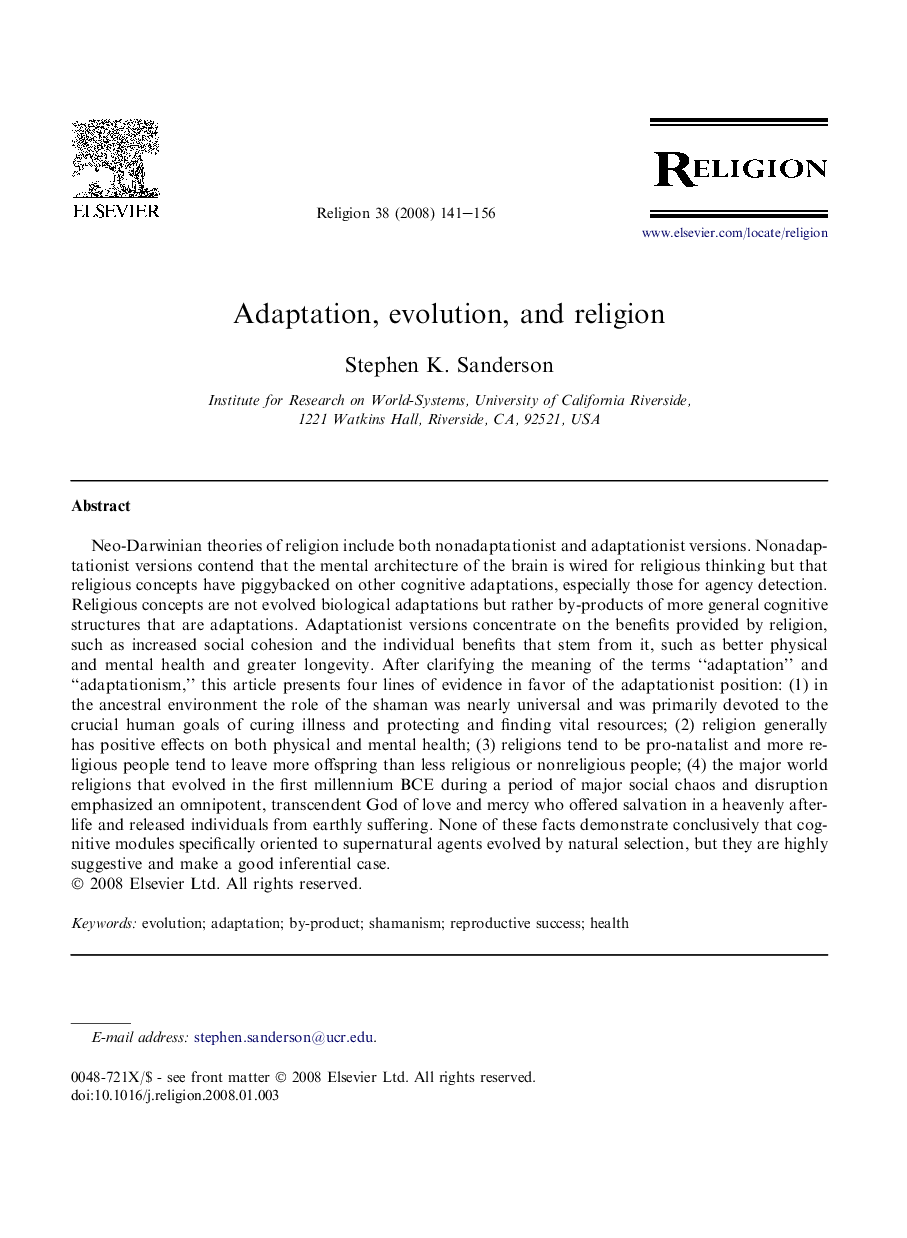| کد مقاله | کد نشریه | سال انتشار | مقاله انگلیسی | نسخه تمام متن |
|---|---|---|---|---|
| 1128973 | 955087 | 2008 | 16 صفحه PDF | دانلود رایگان |
عنوان انگلیسی مقاله ISI
Adaptation, evolution, and religion
دانلود مقاله + سفارش ترجمه
دانلود مقاله ISI انگلیسی
رایگان برای ایرانیان
کلمات کلیدی
موضوعات مرتبط
علوم انسانی و اجتماعی
علوم انسانی و هنر
تاریخ
پیش نمایش صفحه اول مقاله

چکیده انگلیسی
Neo-Darwinian theories of religion include both nonadaptationist and adaptationist versions. Nonadaptationist versions contend that the mental architecture of the brain is wired for religious thinking but that religious concepts have piggybacked on other cognitive adaptations, especially those for agency detection. Religious concepts are not evolved biological adaptations but rather by-products of more general cognitive structures that are adaptations. Adaptationist versions concentrate on the benefits provided by religion, such as increased social cohesion and the individual benefits that stem from it, such as better physical and mental health and greater longevity. After clarifying the meaning of the terms “adaptation” and “adaptationism,” this article presents four lines of evidence in favor of the adaptationist position: (1) in the ancestral environment the role of the shaman was nearly universal and was primarily devoted to the crucial human goals of curing illness and protecting and finding vital resources; (2) religion generally has positive effects on both physical and mental health; (3) religions tend to be pro-natalist and more religious people tend to leave more offspring than less religious or nonreligious people; (4) the major world religions that evolved in the first millennium BCE during a period of major social chaos and disruption emphasized an omnipotent, transcendent God of love and mercy who offered salvation in a heavenly afterlife and released individuals from earthly suffering. None of these facts demonstrate conclusively that cognitive modules specifically oriented to supernatural agents evolved by natural selection, but they are highly suggestive and make a good inferential case.
ناشر
Database: Elsevier - ScienceDirect (ساینس دایرکت)
Journal: Religion - Volume 38, Issue 2, June 2008, Pages 141-156
Journal: Religion - Volume 38, Issue 2, June 2008, Pages 141-156
نویسندگان
Stephen K. Sanderson,